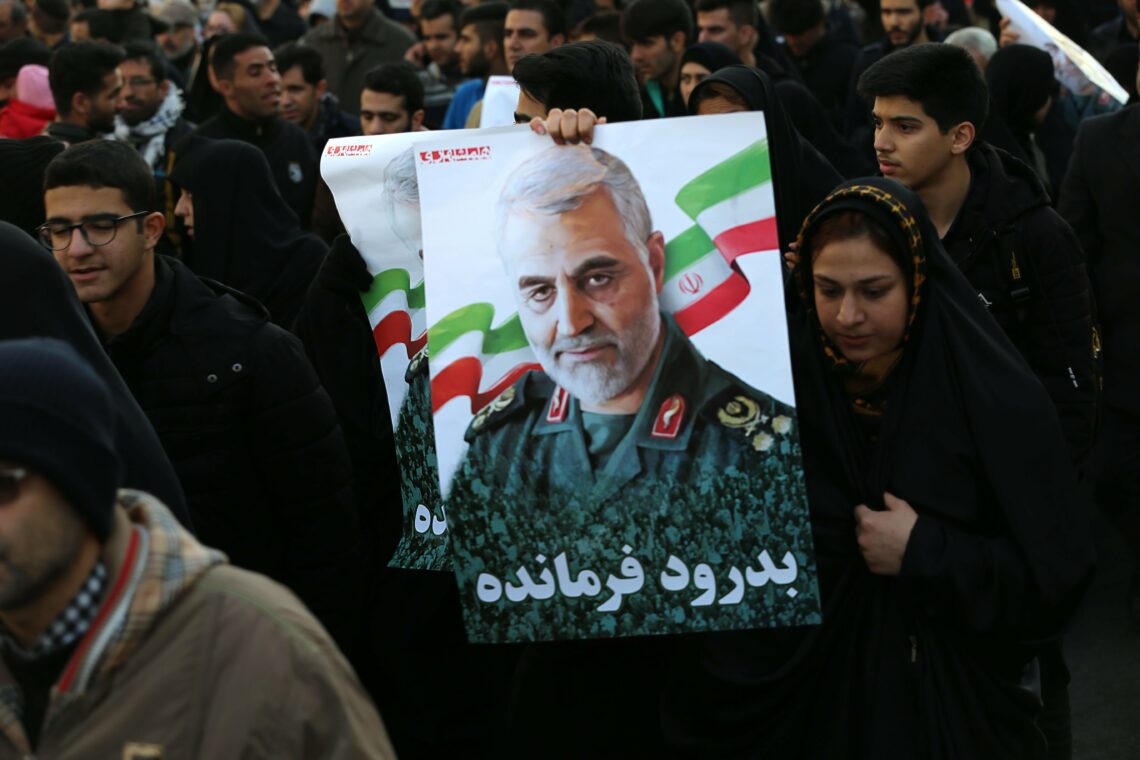Iran’s aspirations for hegemony and its terrorist activities
The U.S.’s killing of Major General Qassem Soleimani is a huge blow to the Iranian regime. Washington had valid reasons for making the move. For now, it looks likely that Iran will restrict its retaliation to verbal attacks.

The killing of Major General Qassem Soleimani, head of the Quds Force of Tehran’s Islamic Revolutionary Guard Corps, in an American air strike is doubtless of huge significance. The move amounted to more than taking out a leader of Islamic State or another terrorist group. In importance, Soleimani was unofficially number-two in Iranian structures. He was the mastermind behind Iran’s open, covert and terrorist operations abroad. The Quds Force is an elite military group.
The strike took place at Baghdad International Airport. Significantly, Abu Mahdi al-Muhandis, deputy commander of Iraq’s Popular Mobilization Force (PMF), an Iran-backed umbrella organization comprising several militias, was killed in the same attack.
Soleimani was essential in leading Iran’s expansionary and anti-Western activities in Iraq, Syria, Yemen, Lebanon and other Arab countries. He pulled the strings of Iraq’s pro-Iranian politicians. The United States and the European Union designated him a terrorist. “He has the blood of hundreds of Americans on his hands,” said retired General David Petraeus. But Soleimani’s attacks against others in the Middle East were at least as violent.
Soleimani was essential in leading Iran’s expansionary and anti-Western activities.
Tehran wants to establish itself as regional hegemon. Its main foes in accomplishing this goal are Saudi Arabia, the U.S. and Israel. Its policy is to stir unrest and civil war, and to bring governments or members of governments under its control.
Challenges for Tehran
The recent unrest within Iran was mainly caused by the dire economic situation there. The regime needed to make strong moves abroad to show strength and success. It therefore increased its support for attacks against Americans or American installations. According to U.S. sources, there have been 11 such attacks in the past few months alone.
Iran was also faced with an additional problem: a potential loss of influence in Lebanon and Iraq due to political changes. In those countries, civil society had become increasingly vocal, inspiring demonstrations against their corrupt governments, which were close to Iran. In Iraq, Shia politicians and government officials close to Prime Minister Adel Abdul Mahdi drew public ire. Tehran’s interests were clearly threatened. Iraqis will cast their votes in regional elections this year. Soleimani appeared to be advising officials in Iraq on how to suppress the movements toward change and a stronger civil society – as Iran has so successfully done over the years.
The reactions in Iran at Soleimani’s funeral show just how important he was. Although he was immediately replaced in the Quds Force, nobody else had his network and capabilities. Thus the loud shouts for revenge from Tehran.
Crucial move
Taking the above into account, it is clear why Washington decided to carry out the strike. It can truly be seen as one of the most important operations of its kind. Osama bin Laden, for example, was only killed after he had lost much of his power and had retreated into hiding. Soleimani was still fully active and at the height of his authority.
Not defending oneself for fear of retaliation is a sign of weakness.
He had been watched for quite some time. The timing of the attack might have been driven by the recent attacks against U.S. interests in Iraq, the Iraqi government’s plans to oppress a rising civil society, or a desire to fight corrupt politics influenced by Iran. The storming of the U.S. embassy in Baghdad on December 31, 2019, by Iran-backed militiamen and their supporters might have been the straw that broke the camel’s back.
Many are concerned about Tehran’s retaliation and other potential consequences. Due to his closeness to Iran, it is not surprising that Prime Minister Abdul Mahdi asked the Iraqi parliament to pass a resolution to expel the U.S. military from Iraq.
Washington has valid reasons for considering Soleimani’s killing an act of prevention and defense. Not defending oneself for fear of retaliation is a sign of weakness.
By taking this action, the U.S.’s general standing in the region has increased. It will be difficult for Tehran to retaliate immediately. The loss of this key leader must first be overcome. Washington has made it very clear that it will retaliate if Tehran continues its attacks on American interests. It is likely that the Iranian retaliation will be restricted to verbal attacks for the time being.
